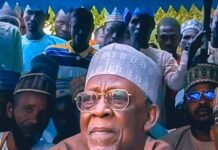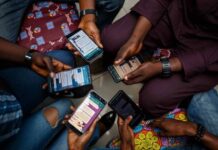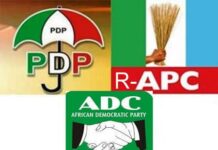The Place of Nigeria’s social media bill on misinformation, disinformation and hate speech in the COVID 19 ERA, by Hauwa Mohammed Sani (PhD)
Marshall McLuhan (1964) coined the term “global village” and predicted a world where man and the media would be so close that one would be the extension of the other. The reality of his prediction underscores the predominance of the internet and the dynamics of what Thomas Friedman refers to as “the dot-com bust.”
With the Internet and social media, geographical and social boundaries have been shattered and the whole world is clicking.
Social media is “an advanced form of communication that gives users access to platforms that correspond with their interests and ideas, and allows them to air their views on topical issues or personal interests which can be viewed simultaneously by millions of other users at the same time”.
Social media in Nigeria like in the rest of the World is the principal purveyor of Misinformation, Disinformation and Hate Speech in all ramifications. Thus, there is the need for local and global actions to curtail the abuses of the freedoms of doing everything that information and communications technologies (ICT) provides via social media outlets and or platforms.
The Global State of Digital (Source) in its 2021 report released in January discovered that there are 104.4 million internet users in Nigeria in January 2021. The number of internet users in Nigeria increased by 19 million (+22%) between 2020 and 2021. Internet penetration in Nigeria stood at 50.0% by January 2021. As of the third quarter of 2020, the report found that WhatsApp is the most active social media platform among Nigerians with 93% of users, aged 16 to 64 years, followed by Facebook at 86%, and YouTube at 82% of the individuals with access to the internet.
In 2020, the number of social media users in Nigeria reached roughly 28 million, there is also 33.00 million social media users in Nigeria in January 2021.
The number of social media users in Nigeria increased by 6.0 million (+22%) between 2020 and 2021. The number of social media users in Nigeria was equivalent to 15.8% of the total population in January 2021.
The basic concepts dominating the Nigerian social media platforms today as established in many pieces of research are Misinformation, Disinformation and Hate speeches.
Misinformation is perhaps the most innocent of the terms – it is misleading information created or shared without the intent to manipulate people. An example would be sharing a rumour that a celebrity died, before finding out it is false.
Disinformation, by contrast, refers to deliberate attempts to confuse or manipulate people with dishonest information. It can at times be orchestrated by groups such as the Internet Research Agency or can be coordinated across multiple social media accounts. It may also use automated systems, called bots, to post and share information online, disinformation can turn into misinformation when spread by unwitting readers who believe the material.
Hate speech is usually thought to include communications of animosity or disparagement of an individual or a group, on account of a group’s characteristics such as race, colour, national origin, sex, disability, religion, or sexual orientation.
Some scholars like Enahoro, see hate speech as polluted statements, especially by Nigerians, attacking each other on the basis of ethnicity or religion. Nadim and Fledmoe describe hate speech as any persecuting, degrading or discriminating speech on the ground of the recipient’s minority group identity; and that such speech that will be regarded as hate speech must be conveyed publicly or in the presence of others, and be directed at a certain group or on individuals’ assumed group identity.
A legal definition of hate speech varies from country to country, each country has devised legal ways of dealing with issues of hate speech. However, the effectiveness of handling the laws dealing with hate speech remains questionable in Nigeria because dealing with perpetrators depends on one’s personality.
There are a plethora of researches that dealt with the issue of hate speech and its impacts in the heterogeneous and polarized country Nigeria. Adedokun in her recent study, Hate Speech and its Effects on the Nigerian Communities; A Case Study of Ibadan Metropolis, Oyo State. Submits that hate speech threatens the nation-building process by widening the social distance among Nigerians, cementing existing distrust, and undermining national support. Hate speech can also negatively affect the economy.
Akanji is of the opinion that hate speeches pose threats to national unity, and that hate speeches could lead to sectional interests and not national interest and could take a serious negative toll on Nigeria and Nigerians. Akanji alluding to George Kennan, an American Diplomat and Strategist, who capture the frightful impact of hate speech purveyors said “war has a momentum of its own, you know where you begin, you never know where you are going to end”. The above captures the extent to which hate speech could go to cause disunity in a nation.
On the consequences of hate speech, Salihu and Lorna state that one of the perils of hate speech is the effect that it leaves on a victim’s mental health. Victims of hate speech often become depressed, agonized and sometimes suicidal, losing their confidence and self-esteem. Salihu states further, that hate speech reinforces stereotype prejudices that are not easy to overcome. Salihu’s analysis indicated the fact that hate speech is a common problem which exists among people of different religion, ethnicity, political parties and geographical zones through exchanging fallacies and illusions.
Alkali, Faga and Mbursa examined the problem created by hate speech, and foul language on social media platforms in Nigeria, and their moral and legal implications on society and journalism practice. They found that, though many people understood what hate speech was, they did not understand its legal consequence, they also discovered that hate speech and foul language are most prevalent on social media platforms in Nigeria.
Consequently, they recommended that there should be awareness as to what constitutes hate speech and that a monitoring mechanism agency should be put in place to identify and remove hate speech contents on social media platforms. In line with these views, this article examines the place of the Social media bill in Nigeria, and the aporia surrounding it in curtailing Hate Speech and Disinformation, particularly in this Covid19 Era.
Social Media Bill was introduced by the Senate of the Federal Republic of Nigeria on 5 November 2019 to criminalise the use of social media in peddling false or malicious information. (Vanguard News. 2019-11-06). The original title of the bill is Protection from Internet Falsehood and Manipulations Bill 2019. While the public media calls it the Anti-Social Media Bill.
It was sponsored by Senator Mohammed Sani Musa from northern Nigeria. After the bill passed the second reading (This day live. 2019-11-20) on the floor of the Nigerian Senate and its details were made public, information emerged on social media accusing the sponsor of the bill of plagiarising a similar law in Singapore.
The transmission of COVID-19 in Nigeria has been equidistant by the transmission of misinformation and disinformation about the coronavirus. In Nigeria, information casting doubt on the existence of the coronavirus is spread especially through social media channels, and the social media bill which is supposed to curtail these acts appears to have been checkmated or even passively drowned by the cacophony of dissent from champions of freedom of expression and free speech.
Every night, around 11:30 pm, the Nigeria Centre for Disease Control (NCDC) publishes daily figures for COVID-19 confirmed cases, as well as the number of patients discharged. A closer look at the comments during the early days of the pandemic showed many Twitter, WhatsApp and Facebook users made fun of the information and described the figures generated by the NCDC as estimates. Many Nigerians were and still remain sceptical about the existence of COVID-19. Below are some of the comments extracted from the different social media platforms:
“Lie; lie,” “I don’t believe there’s COVID-19.”Small disease no de kill African man.” “I can’t be infected by COVID-19 because I’m young and have a strong immune system. “It doesn’t survive in African weather”. “It is just a common flu that catches oyinbo, we de do flu tete and we de survive them”. (It is just a common flu that affects only the Whiteman because we have been infected with the disease a long time ago and we survived it) “There is nothing like Covid 19.” “Chloroquine and black seed are the cure to coronavirus.” “Propagating conspiracy theories.” “China virus,” “The vaccines are harmful.” “Vaccines could alter human DNA”.” useless people, useless government, “etc.
From the foregoing, most of the communicators in the social media platforms are not peaceful in their use of language. The expressions of the communicators on the various social media platform analysed, contain risk communication, harshness, insults, curses, propaganda, fake news, hate speech, false accusation, bigotry and lies.
Considering the levels of misinformation and disinformation, which later metamorphosed into Hate Speeches, which are prevalent in the Nigerian social media platforms. The Social Media bill can be used to regulate such nuances, even though it was presented prior to the pandemic, there are particular objectives in the bill which might have been very useful in curtailing the menaces.
For instance, according to the bill, a person must not: transmit a statement that is false or, transmits a statement that might:
i. Affect the security or any part of Nigeria.
ii. Affect public health, public safety or public finance.
iii, Cause enmity or hatred towards a person or group of persons.
But the bill has been met with much resistance, given its apparent focus on curtailing criticism of the government. In general, concerns around censorship and limitations on free speech rear their heads when considering whether the law should intervene in limiting misinformation.
And other ongoing legislative efforts on developing public health emergency legislation have not focused on misinformation or disinformation.
This article subscribes fully to the social media bill, which stated in one of its objectives that deliberate spreading of false information must be sanctioned, not only for the purpose of deterrence but also to punish the harm that misinformation portends for all.
Extreme cases of misinformation and disinformation may mandate sanctions by professional regulatory bodies or the payment of fines (including for organisational entities) as a last resort to prevent individual harm. Considering the aporia surrounding disinformation and hate speech, particularly during the coronavirus period, the Social media bill will play a role in curbing this menace.
The NCDC has used its social media platforms to debunk misinformation as well as issuing press releases to correct incorrect information and rumours. Other organisations like Africa Check and Nigeria Health Watch have sought to address misinformation.
However, other government institutions should also play their part in providing additional avenues and innovatively open new channels to engage correct misinformation, especially during a pandemic when people are bombarded with information and misinformation — and at some point, it becomes difficult to decipher who to trust, and where to get trusted and reliable information from.
This task isn’t only the responsibility of government institutions but requires everyone to do their part, from religious leaders to medical professionals, also debunking and fact-checking information before disseminating should rationally become everyone’s duty. It is an aggressive fight and it entails using the various channels that misinformation merchants are leveraging to spread misinformation. Despite several attempts to address misinformation in Nigeria, a wide gap still exists in knowledge and understanding of such problematic speeches For National harmony, social justice and tolerance, debunking and fact-checking information before disseminating should rationally become everyone’s duty.
For a society to be truly democratic there is the need for the equal dignity of all human beings as this will pave way for progress and development. It is however discovered that most times, freedom of expression is abused which gradually lead to toxic and threatening speeches.
This is why though some societies are democratic, there is the need to impose sanctions to curb/prevent all forms of expression which spread, incite, promote or justify hatred based on intolerance. Hence, this article proposes the adoption of the Nigeria Social Media Bill. If misinformation is being addressed from multiple fronts, and facts are being disseminated widely, truth stands a better chance of winning. Because in the face of the facts, misinformation and disinformation, crumbles and hate speech vanishes.
Recommendations:
I. Nigeria’s Social Media Bill should be upheld.
II. Social media communicators should imbibe the culture of peaceful communication.
III. Communication elites should focus on shaping online discussions.
IV. Social media users should exercise the rights to be silent.
V. Social media should be used productively and positively.
VI. The communicators should verify information through trusted sources.
Hauwa Mohammed Sani (PhD) is a staff of the Department of English and Literary Studies,
Ahmadu Bello University, Zaria and can be reached at hauwamohammedsanim@gmail.com, hmsani@abu.edu.ng
Follow the Neptune Prime channel on WhatsApp:
Do you have breaking news, interview request, opinion, suggestion, or want your event covered? Email us at neptuneprime2233@gmail.com





